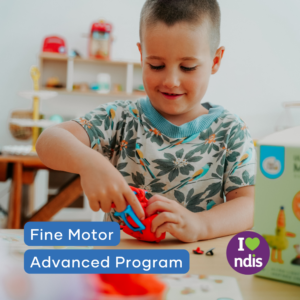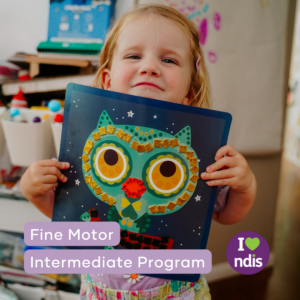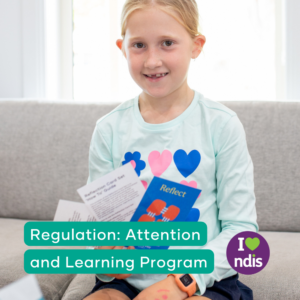
Every child is unique, and support strategies should be tailored to individual needs.
In the blog we introduce Emily, an imaginative 11-year-old girl facing challenges with executive functioning, impacting her daily life and self-esteem. Executive dysfunction affects her ability to plan, organise, and initiate tasks. Hannah P, a parent and Paediatric Therapist discusses strategies for supporting children like Emily including establishing routines, using visual aids, breaking tasks into smaller steps, employing timers and alarms, teaching problem-solving, providing organisational support, fostering independence, offering positive reinforcement, and showing patience and empathy.

…every child is unique and the strategies that work best for one child may vary from those that work for others. Having said that, I’m yet to meet a child who doesn’t benefit from patience and understanding to develop skills and thrive in various aspects of life!
I want you to take a moment to imagine a bright and creative 11-year-old girl with a world of potential ahead of her. Let’s call her Emily. Emily likes many of the things other kids her age enjoy. She enjoys playing with her friends, loves reading and fantasy and has a deep curiosity about the world around her.
Emily loves getting lost in arts and crafts and creating, but getting started can be nearly impossible some days. Once she starts, one project can roll into another and then another and then another, and before she knows it she’s sitting on the floor surrounded by ‘stuff’ and half-finished projects. Now she’s overwhelmed.
Emily is also an amazing singer and spends loads of time writing songs and song lyrics and belting out tunes. When engaging in this passion, Emily completely loses track of time. Being acutely aware of this, and in a bid to try to remain on time or to gauge the concept of time, Emily will repeatedly ask what the time is and how long until she needs to do XYZ. Despite this desire to have required tasks completed and to be ready to go on time, Emily is either ready an hour early and pacing, or has forgotten to allow time for a toilet break just as it’s time to walk out the door.

Emily’s room is a constant battleground of clutter and disorganisation. She frequently misplaces important items like her schoolbooks, glasses, shoes or personal belongings, making her morning routine a source of frustration and confusion for both her and her parents. Emily loves it when her mother meticulously tidies her room, sorts her things and labels her drawers, but she cannot for the life of her keep that level of order, no matter how hard she tries.
Over time, Emily’s struggles with daily tasks and routines begin to take a toll on her self-esteem. She begins to internalise some of her difficulties and perceives herself as inadequate or incapable, because “everyone else can do it.” She wonders why she finds it so very hard.
Do you have an Emily in your life? Do you know what’s going on for Emily?
Emily faces a daily battle that is often invisible – executive functioning difficulties or executive dysfunction. Executive dysfunction is a term that encompasses a range of cognitive and emotional difficulties that can affect a person’s ability to plan, organise, initiate tasks, set goals and control impulses. In children, it can manifest in various ways and can be a significant challenge to their daily lives, both at home and in school.
Yes, I know an Emily! How do I help her?
Providing adequate support for a child like Emily can teach skills and strategies to help them navigate daily challenges and develop essential life skills. Here are some strategies and tips that may assist your child with executive functioning:
Providing adequate support for a child like Emily can teach skills and strategies to help them navigate daily challenges and develop essential life skills. Here are some strategies and tips that may assist your child with executive functioning:
- Establish routines: Create a consistent daily schedule with clear routines. Knowing what to expect can help children feel more in control and reduce anxiety. Ensure the routine includes time for transitions between activities.
- Visual supports: Use visual aids, such as charts or calendars, to help your child understand and track daily tasks and responsibilities. This visual support can make it easier for your child to plan and organise their day.
- Break tasks down: When facing a complex task, break it down into smaller, manageable steps. Help your child focus on completing one step at a time and celebrate achievements along the way.
- Use timers and alarms: Timers and alarms can help your child manage their time better. Set reminders for transitions, task completion, or breaks to reduce procrastination and worry.
- Teach problem-solving: Encourage your child to think through problems and possible solutions. Guided problem-solving can help your child develop critical thinking skills and improve their ability to plan and execute.
- Organisational support: Provide tools and strategies to help your child get organised and provide them with a fighting chance of staying organised. This may include labelled storage containers, colour-coding school timetables and books, or digital organisation apps to manage schoolwork and belongings.
- Support independence and autonomy: Gradually empower your child to take on more responsibilities as they mature. Encourage age-appropriate self-care tasks, such as dressing, preparing meals or snacks, cleaning or managing homework.
- Positive reinforcement: Celebrate achievements, no matter how small. Positive reinforcement can boost your child’s self-esteem and motivation to keep working on tasks that are hard.
- Patience and empathy: Show your child patience and understanding. Experiencing difficulties with executive functioning is not a choice. Your child may be acutely aware of their difficulties and feel frustrated at times.
- Offer emotional support and encouragement.
Remember that every child is unique and the strategies that work best for one child may vary from those that work for others. Having said that, I’m yet to meet a child who doesn’t benefit from patience and understanding to develop skills and thrive in various aspects of life!
22 FEBRUARY 2024
WRITTEN BY HANNAH P
PARENT | PAEDIATRIC THERAPIST










